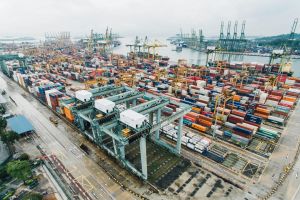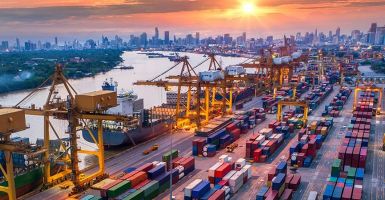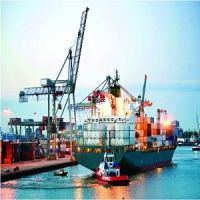Free Trade Agreements: A Path to Prosperity and Cooperation

Free Trade Agreements usually are the formal pacts which are between the two or other countries to eliminate or to curb down some of the barriers to trade as well as to also promote the set of economic cooperation. Such agreements may also take different forms, beginning from the reductions of simple tariff to the most comprehensive treaties which address to the most extensive range of the issues for trade-related. On the other hand, specifics differ from one single FTA to other one, they specifically include provisions which takes care of key and crucial areas:
1. Tariffs: Here the free trade agreement usually aims for eliminating and drastically reducing the tariffs on the imported services. With this, they also make the foreign products to be quite affordable as well as accessible to the customers that are in participating countries, thereby driving the financial growth as well as expanding the access of market for the businesses.
2. Non-Tariff Obstructions: Apart from tariffs, FTAs take care of non-tariff barriers like the quotas, along with the licensing needs, and other set of technical regulations. Coordinating such kinds of rules assist to streamline trade as well as reduce the cost of compliance.
3. Service Trade: FTAs move beyond trading of the goods; they even facilitate the trade finance services such as finance, education and healthcare. It creates new opportunities for service providers to access international markets.
4. Intellectual Property: Many FTAs include provisions on intellectual property rights, protecting innovations and creations. This encourages innovation and fosters the growth of creative industries.
5. Investment: FTAs often include provisions that protect foreign investments, providing a stable and predictable environment for investors.
6. Resolution of Dispute: For making sure about smooth functioning of agreement, FTAs specifically establish the mechanisms to easily resolve the trade disputes among different sent of the participating countries. It also assists in integrity of agreement which ensures that they help to offer benefits to all different parties.
7. Regulatory Cooperation: Here in a few situations, FTAs encourage regulatory cooperation along with an exchange for best practices, specifically in areas such as health as well as safety ethics. This promotes efficiency and reduces duplication of efforts.
Why are Free Trade Agreements Helpful?
The FTA provides various sets of benefits that make them quite crucial tools for the latest economies and also to foster international cooperation. Below mentioned are few benefits:1. Economic Growth: FTAs stimulate economic growth by expanding market access for businesses. While the tariffs and different trade barriers get removed, the companies may have events in the big consumer bases that lead to enhanced sales and high profits.
2. Better Exports: The Countries which enter in the FTAs usually experience some crucial increases in the level of exports. This not only boosts the revenue of businesses but also helps balance trade deficits.
3. Customer Benefits: With decreased tariffs usually mean the low prices for the imported finance services & goods. It offers direct benefits to the customer by offering access to an excessive array of reasonable products.
4. Creation of Job: When the businesses grow & expands the exports, they usually should hire additional employees to meet the demand. FTAs can lead to job creation, reducing unemployment rates.
5. FDI Attraction: FTAs make countries more attractive to foreign investors by providing legal protection for their investments. This can lead to increased FDI, which can further drive economic development.
6. Innovation and Technology Transfer: FTAs often include provisions related to intellectual property protection and cooperation in research and development. This encourages innovation and facilitates the transfer of technology between countries.
7. Peace and Stability: Trade agreements promote peaceful relations between nations by fostering economic interdependence. Countries that engage in trade are less likely to resort to conflict, as it would disrupt their economic ties.
8. Global Supply Chains: FTAs facilitate the creation of global supply chains, where different stages of production occur in various countries. This can enhance efficiency and competitiveness in industries like manufacturing.
9. Strengthened Diplomatic Ties: Engaging in trade negotiations and agreements can strengthen diplomatic ties between countries. It encourages dialogue and cooperation on various fronts beyond trade.
10. Removing Poverty: Through promoting economic growth with job creation, FTAs may even contribute to the reduction of poverty, finally improving the living standard for citizens.






